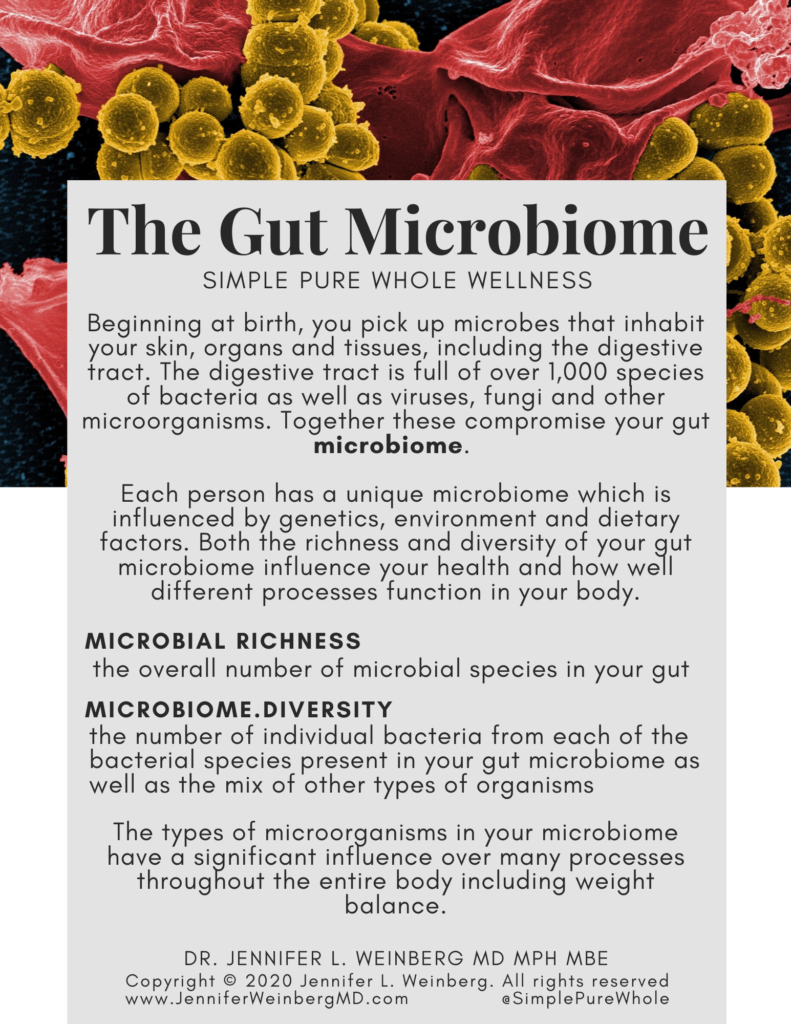Hypothyroidism: A Functional Medicine Approach to Treating Hypothyroidism Naturally
Hypothyroidism: A Functional Medicine Approach to Treating Hypothyroidism Naturally
This Article Was Originally Published on Rupa Health
The thyroid is the butterfly-shaped gland at the base of your neck that produces hormones that are essential for regulating metabolism, body temperature, energy, heart rate, menstrual cycle, mood, and hair and nail growth. Hypothyroidism occurs when the thyroid is underactive and does not produce enough thyroid hormones. Since these hormones influence every cell in the body, hypothyroidism can have wide-reaching impacts including overall slowing of metabolic processes. This can result in fatigue, weight gain, decreased body temperature, hair thinning, constipation, brain fog, and fluid retention. A functional medicine approach to hypothyroidism uncovers the root cause of why the thyroid is under-functioning and helps to restore balance.
In the United States, 20 million people have some form of a thyroid condition. Women are five to eight times more likely than men to have thyroid problems with one in eight women developing a thyroid disorder during her lifetime. Often, hypothyroidism goes undiagnosed for a significant period of time.
In iodine-sufficient countries like the United States, the autoimmune thyroid disorder Hashimoto’s is the most common cause of hypothyroidism. Globally, low iodine in the diet is the leading cause of an underfunctioning thyroid gland.
Affiliate Disclosure & Privacy Policy (please review our complete policy here): we use affiliate links and analytics on our website. This post is NOT sponsored. These statements have not been evaluated by the FDA and should not be considered medical advice or treatment. Please consult your personal health provider before making any changes to your diet or lifestyle.
Hypothyroidism Signs & Symptoms
The thyroid functions within the complex interplay of signals coordinated by the brain and interacting with several nutrients and other hormones. The hypothalamus in the brain is responsible for managing hunger, thirst, sleep, hormones, and body temperature and monitors the level of thyroid hormone present in the blood. When it detects the need for increasing metabolism and energy, it releases Thyroid Releasing Hormone (TRH) to signal the pituitary gland at the base of your brain to release Thyroid Stimulating Hormone (TSH).
TSH acts directly on the thyroid, stimulating it to produce and release thyroid hormones. To do this, the thyroid uses the amino acid tyrosine and iodine to manufacture and convert thyroid hormones including
- T4, a storage form of thyroid hormone that circulates throughout the blood and is stored in tissues for when it is needed
- T3, the active form of thyroid hormone
When different parts of the body need active T3, they convert the storage T4 to active T3 using an enzyme called deiodinase. T3 can then act on cells to stimulate energy production and regulate metabolism.
When the thyroid does not produce enough hormones or the hormones it produces can not act effectively, this impacts cells throughout the body causing symptoms such as
- Fatigue
- Weight gain
- Headaches and migraines
- Thinning or dry hair, nails, and skin
- Brittle nails
- Feeling cold all the time and decreased body temperature
- Irregular periods
- Puffiness or fluid retention
- Slowed heart rate
- Fertility problems
- Low libido
- Slow digestion and constipation
- Brain fog
- Depression
- Aching muscles and joints
- Loss of muscle strength and tone
Especially early on in the disease process, these symptoms may be vague and seem common in our busy society, delaying diagnosis.
Over time, untreated hypothyroidism can lead to additional bodywide complications including
- Elevated cholesterol
- Heart disease and heart failure
- High blood pressure
- Problems during pregnancy
- Myxedema, a rare life-threatening condition where the body’s functions slow down significantly
Hypothyroidism Possible Causes
Hypothyroidism can result when the thyroid gland is underactive and not producing enough thyroid hormones and/or the thyroid hormones cannot work properly in the peripheral tissues. This can happen for several reasons.
- The pituitary gland malfunctions and does not send enough Thyroid Stimulating Hormone (TSH) to the thyroid
- TSH levels are normal, yet the thyroid does not produce enough T4 and T3 to adequately stimulate cells due to nutritional deficiencies, malfunction, or other factors
- The peripheral receptors do not respond properly to thyroid hormones
Autoimmunity
Hashimoto’s disease is the most common cause of hypothyroidism or an underactive thyroid in iodine-sufficient areas of the world like the US, impacting 1-4% of Americans, primarily women. This is an autoimmune condition where the body produces antibodies that attack and damage the thyroid gland, impairing the thyroid’s ability to produce thyroid hormone over time.
Some of the main factors that can contribute to autoimmunity and the development of Hashimoto’s disease include imbalances in gut health, nutrition, infections, environmental exposures, and genetics.
Environmental factors
Environmental factors such as heavy metals and endocrine-disrupting chemicals (EDCs), which are often found in foods, food packaging, water, and personal care products, can interfere with thyroid gland functioning and thyroid hormone transport through multiple mechanisms. Past or ongoing exposures to heavy metals, mercury, arsenic, cadmium, solvents, plastics, and pesticides contribute to imbalance gut bacteria (dysbiosis), inflammation, and autoimmunity by harming the body’s detoxification, digestive, nervous, and endocrine systems. Certain chemicals such as fluoride and bromine in municipal water supplies, flame retardants, and some baked goods can directly compete with iodine in the thyroid gland, impacting its functioning.
Iodine deficiency
Iodine is a trace mineral found in seafood, seaweed, plants grown in iodine-rich soil, and iodized salt and is needed for the production of thyroid hormones. Too little iodine can lead to hypothyroidism since the gland cannot adequately produce T3 and T4, while too much iodine can worsen hypothyroidism in people who already have the condition.
Hyperthyroidism treatment
Radioactive iodine or anti-thyroid medications are often used to treat hyperthyroidism when too much thyroid hormone is produced. If hyperthyroidism is over-corrected, it can lower thyroid hormone production too much, resulting in permanent hypothyroidism.
Other Medications
Several other medications can also contribute to hypothyroidism. These include lithium which may be used to treat mental health disorders like bipolar affective disorder, amiodarone which is used to treat abnormal heart rhythms, and certain medications that help to regulate the immune system and manage infections like HIV and hepatitis.
Thyroid surgery or radiation
Removing all or a large portion of the thyroid gland via surgery or damaging it via radiation treatments can lead to hypothyroidism.
Pituitary disorders
A failure of the pituitary gland to produce enough thyroid-stimulating hormone (TSH) results in the thyroid gland failing to produce enough thyroid hormones. This usually occurs due to a benign tumor of the pituitary gland, inflammation of the pituitary gland, or elevated pressure in the brain that compresses and dysregulates the pituitary gland.
Pregnancy
Hypothyroidism can develop during or after pregnancy (postpartum hypothyroidism) due to an autoimmune process where antibodies are produced that attack the thyroid gland. Without treatment, hypothyroidism during pregnancy can increase the risk of miscarriage, premature delivery, and preeclampsia (elevated blood pressure during the last three months of pregnancy) and also adversely impact the developing fetus.
Borderline Hypothyroidism
Sometimes the terms “borderline hypothyroidism” or “subclinical hypothyroidism” are used when blood tests show that the level of TSH is somewhat elevated above normal, but T3 and T4 levels are within the conventional normal laboratory range. For most conventional laboratories, a “normal” serum TSH level is somewhere between around 0.4 to 4.0 mIU/L with a TSH level of 10 mIU/L or higher indicating hypothyroidism and a TSH level of 4.5 to 10 mIU/L considered subclinical hypothyroidism.
This condition affects between three to eight percent of the population, especially women and older adults. It can be asymptomatic or cause similar symptoms to overt hypothyroidism such as fatigue, anxiety, weight imbalances, and poor memory.
The approach to borderline or subclinical hypothyroidism depends on symptoms and any complicating additional medical conditions like heart failure or cholesterol imbalances. Sometimes, the condition is monitored with repeat follow–up laboratory testing of TSH, T3, and T4 to see if the results change after several months since treating with replacement thyroid hormone can have side effects.
If left untreated, about 30 percent with borderline hypothyroidism will have their TSH levels return to normal within one year while around three percent per year will develop the classical form of hypothyroidism with more severe dysfunction including elevated TSH levels and low levels of T3 and T4.
Functional Medicine Labs to Test for Root Cause of Hypothyroidism
Functional medicine testing can diagnose hypothyroidism and help to identify the underlying causes. This includes assessing the functioning of the thyroid, measuring thyroid-supporting nutrients, and evaluating factors that play a role in immune system function to uncover the causes of the autoimmunity leading to Hashimoto’s disease when that is the cause.
Thyroid function and autoantibodies
To assess the state of thyroid function, a Complete Thyroid Panel including thyroid-stimulating hormone (TSH), T3 (free and total), T4 (free and total), and reverse T3 should be assessed using functional medicine ranges. Compared to conventional lab ranges, which are based on results from the overall population, functional medicine thyroid lab ranges are tailored to detect thyroid issues prior to the onset of more advanced thyroid disease.
- TSH measures how the pituitary gland in the brain is communicating with the thyroid and is indicative of hypothyroidism when elevated. A normal TSH does not rule out thyroid issues on its own since it is an indirect but specific measure of thyroid function.
- Free T4 measures the bioavailable or unbound thyroid hormone and is a marker of low thyroid function when decreased.
- In the peripheral tissues, T4 is converted to T3. A low level of T3 can indicate low thyroid function or a problem with conversion, which often occurs with chronic stress, inflammation, or a high toxic burden.
- Some T4 is also converted to reverse T3 which serves as a “brake” since it competes with free T3 for cell receptor sites. High levels of reverse T3 can cause hypothyroidism and usually reflects a systemic issue like chronic inflammation.
- In addition, thyroid antibody testing for thyroid peroxidase (TPO) and anti-thyroglobulin (TG) and antibodies are key for diagnosing Hashimoto’s disease. In addition to elevated TPO antibodies which are typically found in Hashimoto’s disease, thyroglobulin antibodies may also be elevated, although typically these antibodies are associated with Grave’s disease or autoimmune hyperthyroidism.
Thyroid supportive nutrients
Nutrients including iodine, iron, tyrosine, zinc, selenium, magnesium, and vitamins E, B2, B3, B6, C, and D all contribute to the proper production of thyroid hormones and some of these, including zinc and selenium, are also important for supporting the conversion of T4 to T3. Other nutrients like vitamin A improve cellular sensitivity to thyroid hormones.
Micronutrient testing analyzes vitamins, minerals, and other nutrients along with the performance and functional deficiencies of these micronutrients.
Iodine can also be assessed in the urine.
Gut health
Since dysbiosis and leaky gut are key factors in the development of autoimmunity like Hashimoto’s disease and overall inflammation that can impact the thyroid, assessing gut health can help provide targeted interventions. A Comprehensive Stool Test measures amounts of healthy and unbalanced gut bacteria (dysbiosis), inflammatory markers, leaky gut, parasites, and yeast to assess the state of the gut and guide treatment aimed at restoring balance.
Additional testing for gluten sensitivity or celiac disease and evaluation of the leaky gut marker zonulin can also help to guide treatment.
Food sensitivities can contribute to increased intestinal permeability, inflammation, and autoimmunity. Foods to which an individual is sensitive to can be identified with ELISA testing.
Other factors that influence detoxification
Methylation, detoxification capacity, and glutathione production can be assessed with specialized labs to understand an individual’s genetic susceptibilities and current detoxification capacity. This can help to pinpoint areas that can be supported to bring the body and metabolism back into balance.
Functional Medicine Treatment for Hypothyroidism
While conventional treatment of hypothyroidism usually relies on thyroid medication, it alone does not treat the disease itself but rather the symptoms resulting from low thyroid hormones.
A functional medicine approach to treating hypothyroidism aims to rebalance and regulate the immune system and not simply only replace thyroid hormone. This approach can help to prevent the progression of borderline hypothyroidism into more severe disease and even rebalance hypothyroidism once it has fully manifested. An individualized treatment approach guided by clinical symptoms and functional laboratory testing can tailor a dietary and lifestyle approach that works for each person.
It is important to figure out the contributing root causes such as addressing toxicant exposures, systemic inflammation, and chronic stress and to avoid any individual triggers. Utilizing lifestyle and functional medicine approaches to address root causes can also work to support healing of the thyroid gland.
An individualized anti-inflammatory diet
An important step in dealing with thyroid imbalances is to eliminate contributing factors to the dysfunction, such as an imbalanced diet, nutrient deficiencies, and chronic stress from a poor diet that lead to hormonal changes. Inflammation increases the autoimmune reaction, so a nutrient-rich, anti-inflammatory diet that is tailored to an individual’s sensitivities and needs can help balance inflammation and tame autoimmunity. Eliminating individual trigger foods, such as gluten and other grains, dairy, processed sugars, and other foods that an individual is sensitive to helps to calm systemic inflammation.
Restore thyroid-supporting nutrients
Balancing the intake of micronutrients like vitamin A, zinc, vitamin D, omega-3 fatty acids, and selenium can help to reduce inflammation and prevent hypothyroidism due to nutrient deficiencies. While iodine is a mineral that the thyroid uses to make thyroid hormones, too high iodine intake, which can come from too much salt in the form of processed, packaged foods, or excessive consumption of seaweeds, for example, can negatively affect thyroid functioning. Functional laboratory testing can help guide individualized intake.
Rebalance the gut microbiome
Since the gut microbiome has such a significant impact on the immune system, maintaining diverse and balanced bacteria in the gut can help tame autoimmunity. Restoring equilibrium in the gut microbiota by eating a variety of real whole foods and incorporating probiotic-rich foods like kimchi and sauerkraut that contain naturally-occurring probiotics and prebiotic-rich foods like artichokes, garlic, and beans that nourish healthy bacteria is critical for repairing the mucosal barrier and halting excess inflammation and autoimmunity that can harm thyroid function.
Adequate sleep and stress management
High levels of chronic stress contribute to hypothyroidism and inflammation and have been associated with autoimmunity. Finding balance via lifestyle practices like adequate quality sleep, stress management practices, and balanced movement can improve thyroid and overall health.
Restorative exercises such as yoga, walking, and Qi gong are generally more helpful for balancing inflammation than overly intense exercise. Spending calm time in nature can also reduce inflammation by providing exposure to natural sunlight to optimize vitamin D and direct contact with the earth.
Additionally, supplementation with the adaptogen ashwagandha has been used to help address thyroid dysfunctions. Eight weeks of supplementation helped to improve serum TSH and T4 with few mild and temporary adverse effects.
- Download your free chapters and wellness prescriptions now and get started incorporating a more mindful approach into your life and building resiliency. You can also get your copy of The Whole Cure in paperback or Kindle edition from Amazon.
- My Mindfulness Resources for Crisis and Self-Healing Package provides you with professionally-designed worksheets, handouts and workbooks for creating habits and practicing tools that support optimal stress management, resilience and coping with difficulty.
- Guided meditations and relaxation exercises from my Breathe CD.
Mindfulness Resources for Health Care Practitioners:
- If you are a health coach or other health care professional, I heard from many of you requesting done-for-you content and tools for easy-to-incorporate mindfulness practices that you could use during this time with your clients and patients. To address this need, I want to offer my Done-for-You Package Package of Mindfulness Resources for Crisis and Calm which provides professional mindfulness resources for coaching and sharing self-healing tools and practices to empower you to teach others how to disconnect from panic, fear and anxiety and build inner peace.
- My done-for-you workshop package Rest, Restore & Rejuvenate to Mindfully Manage Stress is the perfect way to offer support for stressful times and everyday optimal health. You can use this completely done-for-you workshop package with your clients or for a virtual teleworkshop or series of sessions. You get everything done for you, from a complete word-for-word script to handouts for your clients to a guided exercise to a complete instruction guide so you are ready to confidently share this guidance with people right away.
- My Done-for-You Breathe CD consists of some simple yet profound breathing and meditation exercises inspired by my book The Whole Cure that you can use with your clients and patients to teach them simple to learn yet profound techniques. These seven exercises are designed to help you reduce tension, build resiliency, regain energy, and remain calm in the face of adversity. They include breathing, muscle relaxation and guided imagery techniques based on traditions of mindfulness, somatic, and mind-body medicines practices.
Addressing environmental factors
Chemicals in plastics, pesticides, heavy metals, and other pollutants can disrupt thyroid function. You can reduce your exposure to these chemicals by using high-quality water and air filters, choosing organic produce, and assessing other exposures such as metal dental amalgams.
Summary:
Hypothyroidism occurs when the thyroid is underactive and does not produce enough thyroid hormones. This leads to a cascade of symptoms throughout the body like fatigue, weight gain or difficulty losing weight, increased sensitivity to cold, constipation, and hair loss. The most common cause of hypothyroidism is the autoimmune disease Hashimoto’s. Borderline or subclinical hypothyroidism can also occur in the early stages before conventional laboratory testing may show abnormalities in thyroid hormone levels T3 and T4.
A comprehensive thyroid panel including TSH, free T4, free T3, reverse T3, and thyroglobulin antibodies can provide a better picture of overall thyroid function. In addition to TSH, the conventional screening test for thyroid function, testing the blood for the presence of TPO antibodies against the thyroid gland is crucial for diagnosing Hashimoto’s and customizing treatment to prevent further damage to the thyroid. A functional medicine approach can also look at other markers of autoimmunity and systemic inflammation by assessing thyroid supportive nutrients, markers of gut health and food sensitivities, and detoxification capacity.
Since hypothyroidism can impact the entire body and result from various causes, a functional medicine approach identifies and addresses root causes of inflammation and autoimmunity to heal the thyroid as well as the immune system. Identifying and treating the root cause of hypothyroidism can allow the body the opportunity to heal.
Affiliate Disclosure & Privacy Policy (please review our complete policy here): we use affiliate links and analytics on our website. This post is NOT sponsored. These statements have not been evaluated by the FDA and should not be considered medical advice or treatment. Please consult your personal health provider before making any changes to your diet or lifestyle.
Join us on Instagram for more functional medicine & mindfulness information!
Medical Disclaimer: Information provided in this post and related resources are for informational purposes only. Jennifer Weinberg is not providing medical advice, diagnosis or treatment information. The information is NOT intended as a substitute for the advice provided by your physician or other healthcare professional. Every body is unique so be sure to check with your healthcare professional before making any dietary or lifestyle changes, taking any medication or nutritional supplement or using any treatment for a health issue. Do not use this information provided for diagnosing or treating a health problem or disease. If you suspect you have a medical problem please contact your healthcare provider promptly and do not disregard professional medical advice based on anything on this website. This website and related resources are not intended to diagnose, treat, cure or prevent disease and do not create a doctor-patient relationship between you and Jennifer Weinberg. These statements have not been evaluated by the FDA. These products are not intended to diagnose, treat, cure, or prevent any disease.











Comments